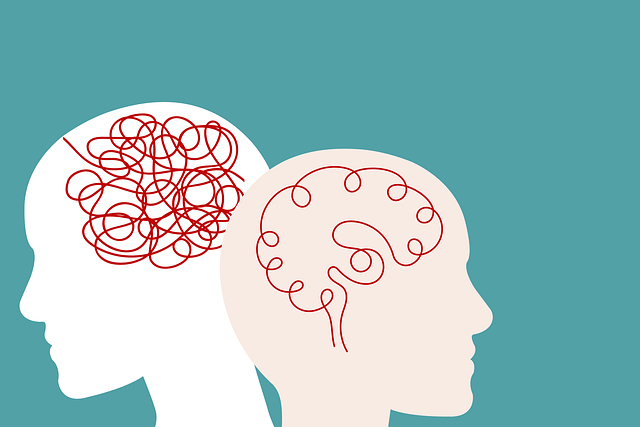Longmont Mindfulness Therapy emphasizes early depression recognition through self-awareness, targeting common indicators like sadness, sleep disturbances, and concentration issues. They promote proactive mental health management with self-care practices, stress techniques, and Self-Awareness Exercises. Mindfulness practices, community engagement, and lifestyle changes are key tools to prevent depression, fostering emotional well-being, resilience, and a supportive network through local resources and social connections.
Depression is a serious yet preventable condition. If you or someone you know is struggling, understanding prevention strategies can be transformative. This article guides you through crucial steps towards well-being, including recognizing signs and symptoms, incorporating mindfulness practices backed by Longmont Mindfulness Therapy, building a supportive network to combat isolation, and adopting lifestyle changes and self-care techniques. By implementing these strategies, you can foster resilience and enhance your emotional well-being.
- Recognizing the Signs and Symptoms of Depression
- Incorporating Mindfulness Practices for Emotional Well-being
- Building a Supportive Network for Overcoming Isolation
- Lifestyle Changes and Self-Care Techniques for Prevention
Recognizing the Signs and Symptoms of Depression

Depression is a serious mental health condition that can significantly impact an individual’s daily life and well-being. Recognizing the signs and symptoms early on is crucial for effective prevention and treatment. Longmont Mindfulness Therapy emphasizes self-awareness as a powerful tool to identify when someone might be struggling. Common indicators include persistent feelings of sadness, loss of interest in activities once enjoyed, changes in appetite or sleep patterns, fatigue, difficulty concentrating, and feelings of worthlessness or guilt.
Healthcare providers play a vital role in burnout prevention strategies by promoting self-care practices among their patients. Encouraging regular exercise, healthy eating habits, and adequate sleep can significantly contribute to mental well-being. Additionally, teaching stress management techniques and providing resources for Self-Awareness Exercises can empower individuals to recognize and address early warning signs, fostering a proactive approach to mental health care, especially in high-pressure professions.
Incorporating Mindfulness Practices for Emotional Well-being

Incorporating mindfulness practices has become a powerful tool in Longmont Mindfulness Therapy, offering individuals a way to cultivate emotional well-being and prevent depression. At its core, mindfulness involves focusing on the present moment, acknowledging and accepting one’s feelings and thoughts without judgment. This simple yet profound practice can significantly enhance coping skills development by fostering a deeper connection with oneself and promoting mental resilience. By integrating mindfulness into daily routines, individuals can learn to navigate stress management workshops organization more effectively, reducing the impact of stressors that may trigger depressive episodes.
The Mind Over Matter principles underlying these practices encourage individuals to take an active role in their emotional health. Through regular mindfulness exercises, one can gain a better understanding of their thought patterns and develop healthier responses to challenging situations. This proactive approach not only prevents depression but also empowers individuals with valuable coping skills to manage stress and maintain equilibrium in their lives.
Building a Supportive Network for Overcoming Isolation

Overcoming isolation is a significant step in depression prevention. Building a supportive network can help combat feelings of loneliness and create a sense of belonging. Longmont Mindfulness Therapy encourages community engagement as a powerful tool to foster connections. Local support groups, volunteer opportunities, or joining social clubs can open doors to new friendships and a sense of purpose. These interactions provide a safe space to share experiences, offer emotional support, and gain different perspectives on life’s challenges.
A robust network can facilitate access to various mental wellness coaching programs and resources. Many communities now offer initiatives like the Community Outreach Program Implementation, which aims to reach individuals who may be struggling but haven’t sought help yet. These programs often include Emotional Healing Processes designed to equip people with coping strategies and promote resilience. By integrating such support systems into daily life, individuals can effectively manage depression and enhance their overall mental wellness.
Lifestyle Changes and Self-Care Techniques for Prevention

Adopting a proactive approach to mental health is key in depression prevention. Simple yet powerful lifestyle changes and self-care techniques can significantly contribute to an individual’s overall well-being. Regular exercise, for instance, boosts mood by releasing endorphins, while maintaining a balanced diet ensures your brain receives essential nutrients vital for emotional regulation. Adequate sleep is another pillar; it allows the mind and body to rest and recover, preventing stress from escalating into more severe issues.
Longmont Mindfulness Therapy emphasizes self-awareness and presence in the moment as effective tools against depression. Practicing mindfulness meditation, engaging in creative outlets, and cultivating meaningful social connections are proven strategies. Additionally, conflict resolution techniques and anxiety relief methods, when integrated into daily routines, can provide individuals with coping mechanisms to navigate life’s challenges more effectively, thereby enhancing mental health awareness and resilience.
Depression prevention is a multifaceted approach that empowers individuals to take charge of their emotional well-being. By recognizing signs early, incorporating mindfulness practices, building supportive networks, and adopting healthy lifestyle changes, one can effectively navigate and prevent bouts of depression. Longmont Mindfulness Therapy offers valuable tools and techniques within these domains, enabling folks to foster resilience and cultivate a brighter, more balanced mental landscape.














